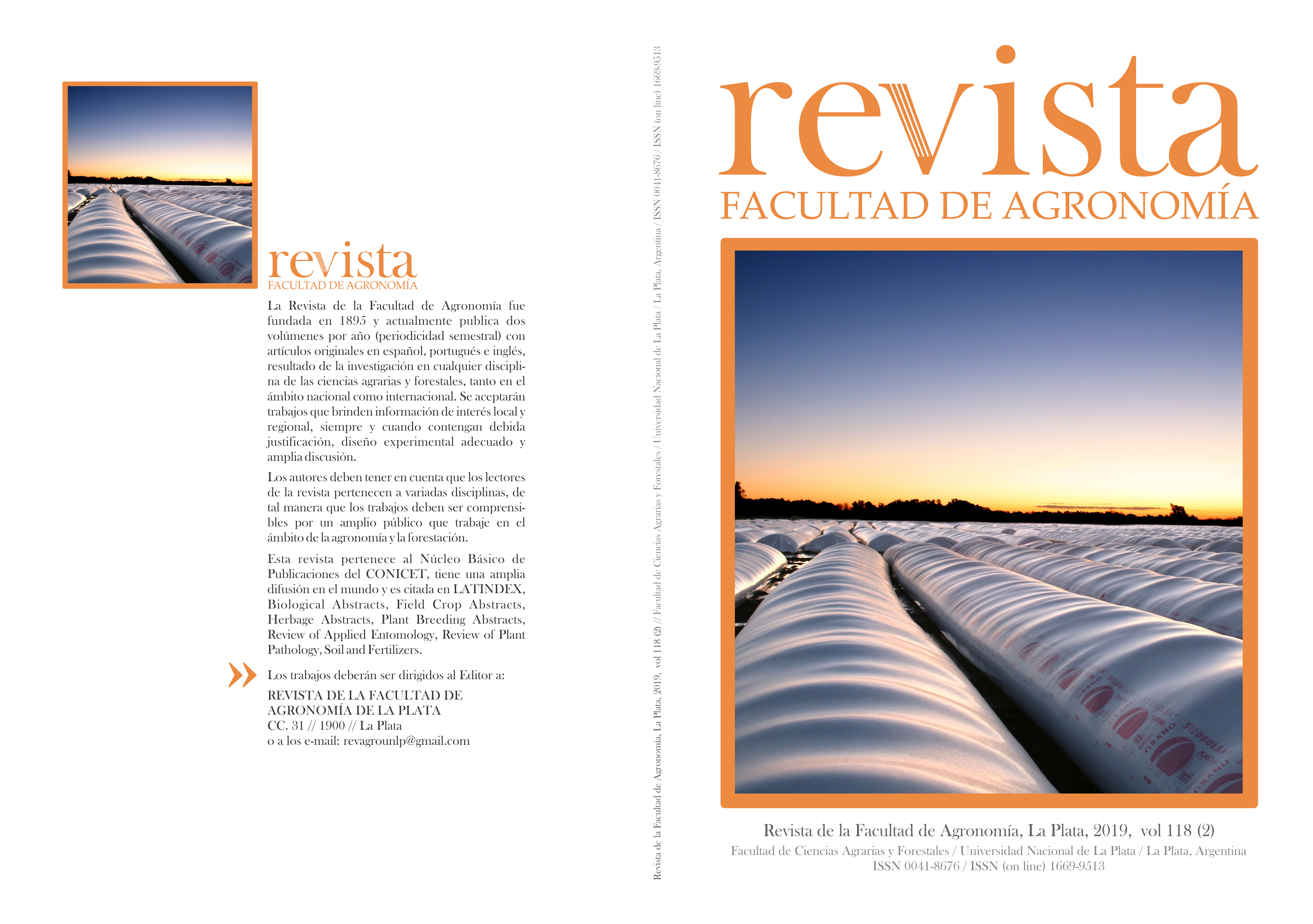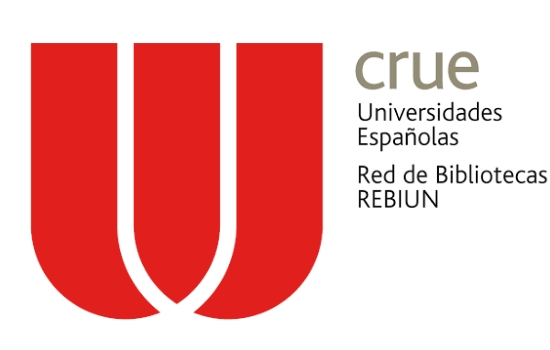Diagnostic analysis of agrarian systems and aspects of family farming in the municipality of Derrubadas, Rio Grande do Sul
DOI:
https://doi.org/10.24215/16699513e025Keywords:
agrarian systems, family agriculture, reciprocity, self-consumptionAbstract
This research aims to understand and analyze the situation of the agricultural systems and the farmers production system in the city of Derrubadas - RS, as well as check the issue of reciprocity and its importance in social reproduction of these families, considering the potential and limits of natural and socio-economic local conditions. For this, we used the method of Diagnostic Analysis of Farming Systems (ADSA). Through stratification of reality it was possible to make a cut at the level of homogeneous area and identify the main production systems in the region, as well as to characterize the main types of farmers. Thus, in the field research, it was possible to identify three types of farmers, among them: family farmers milk producers with low degree of technification; family farmers without milk production; and family farmers producing milk and grains with high technification. Through the analysis of representative Agricultural Production Units of each type, it was found that the family farming in the county strategy proved favorable to the reality of the homogeneous area and that both products for self-consumption as the issue of reciprocity, have the key roles of socioeconomic reproduction of these families.
Downloads
Metrics
References
Brasil. 2006. Lei nº 11.326, de 24 de julho de 2006. Estabelece as diretrizes para a formulação da Política Nacional da Agricultura Familiar e Empreendimentos FamiliaresbRurais.cDisponívelcem: http://www.planalto.gov.br/ccivil_03/_Ato20042006/2006/Lei/L11326.htm.
Caillé, A. 1988. Nem holismo nem individualismo metodológicos: Marcel Mauss e o paradigma da dádiva. Revista Brasileira de Ciências Sociais, 13(38): 5-38.
CONAB. 2015. Companhia Nacional de Abastecimento. Agricultura familiar. Disponível em: http://www.conab.gov.br/conteudos.php?a=112&t=2.
Cunha, N. G., R. J. C. Silveira & C. R. S. Severo. 2006. Estudo de solos do município de Derrubadas - RS. Brasil. Embrapa Clima Temperado.
Dufumier, M. 2007. Projetos de Desenvolvimento Agrícola: manual para especialistas. [Tradução de Vitor de Athayde Couto]. Salvador: EDU. FBA.
EMBRAPA. 2006. Estudo de solos do município de Derrubadas - RS. 2006. Disponível em: <https://www.embrapa.br/clima-temperado/busca-de-publicacoes/-/publicacao/746010/estudo-de-solos-do-municipio-de-derrubadas---rs>.
IBGE. 2006. Fundação Instituto Brasileiro de Geografia e Estatística. IBGE Cidades@. Disponível em: <http://www.ibge.gov.br/cidadesat/default.php>.
Instituto CEPA-SC. 2010. Perspectivas para a agricultura familiar – horizonte 2010. Disponível em: <http://docweb.epagri.sc.gov.br/website_cepa/publicacoes/Agricultura_familiar.pdf>.
Lamarche, H. 1993. A agricultura familiar: comparação internacional. Tradução de Ângela Maria Naoko Tijiwa. Brasil. Editora da Unicamp.
Mauss, M. 1974. Ensaio sobre a dádiva: forma e a razão de trocas nas sociedades arcaicas. In: Sociologia e Antropologia. (pp. 183-294). Brasil. EPU.
Moresco, F. D. & I. E. Rossi. 2006. Plano Municipal De Educação - Secretaria Municipal de Educação Cultura e desporto. Prefeitura Municipal de Derrubadas. Disponível em: http://www.derrubadas-rs.com.br/legislacao/plano_educacao/PLANO%20MUN.%20EDUCA%C3%87%C3%83O.pdf.
Polanyi, K. 1980. A grande transformação. Brasil. Campus.
PREFEITURA MUNICIPAL DE DERRUBADAS. 2015. Site oficial do município, Disponível em: .
Rigo, D. S., P. S. Neumann & P. R. C. Silveira. 2015. A Construção do Conhecimento Socioambiental na Gestão do Espaço Rural: O Caso de Derrubadas – Rs. Redes (St. Cruz Sul, Online), 20(2): 283-307.
Rosa, P. A., F. M. Breunig, R. Balbinot & L. S. Galvão. 2013. Dinâmica da floresta do Parque Estadual do Turvo com índices de vegetação. Floresta Ambient. Seropédica, 20(4): 487-499.
Sabourin, E. 2001. Práticas de reciprocidade e economia de Dádiva em comunidades rurais do Nordeste Brasileiro”. Campina Grande, Raízes, 20: 41-49.
Souza, V. F. & S. M. P. P. Bergamasco. 2015. Políticas públicas para a agricultura familiar brasileira: um estudo sobre o PRONAF nos municípios do circuito das frutas – SP. Revista Extensão Rural, Santa Maria, RS, 22(1): 9-35.
Downloads
Published
How to Cite
Issue
Section
License
A partir de 2019 (Vol. 118 número 2) los artículos se publicarán en la revista bajo una licencia Creative Commons Atribución- NoComercial-CompartirIgual 4.0 Internacional (CC BY-NC-SA 4.0)
Acorde a estos términos, el material se puede compartir (copiar y redistribuir en cualquier medio o formato) y adaptar (remezclar, transformar y crear a partir del material otra obra), siempre que a) se cite la autoría y la fuente original de su publicación (revista y URL de la obra), b) no se use para fines comerciales y c) se mantengan los mismos términos de la licencia.
Previo a esta fecha los artículos se publicaron en la revista bajo una licencia Creative Commons Atribución (CC BY)
En ambos casos, la aceptación de los originales por parte de la revista implica la cesión no exclusiva de los derechos patrimoniales de los/as autores/as en favor del editor, quien permite la reutilización, luego de su edición (posprint), bajo la licencia que corresponda según la edición.
Tal cesión supone, por un lado, que luego de su edición (posprint) en Revista de la Facultad de Agronomía las/os autoras/es pueden publicar su trabajo en cualquier idioma, medio y formato (en tales casos, se solicita que se consigne que el material fue publicado originalmente en esta revista); por otro, la autorización de los/as autores/as para que el trabajo sea cosechado por SEDICI, el repositorio institucional de la Universidad Nacional de La Plata, y sea difundido en las bases de datos que el equipo editorial considere adecuadas para incrementar la visibilidad de la publicación y de sus autores/as.
Asimismo, la revista incentiva a las/os autoras/es para que luego de su publicación en Revista de la Facultad de Agronomía depositen sus producciones en otros repositorios institucionales y temáticos, bajo el principio de que ofrecer a la sociedad la producción científica y académica sin restricciones contribuye a un mayor intercambio del conocimiento global.





























